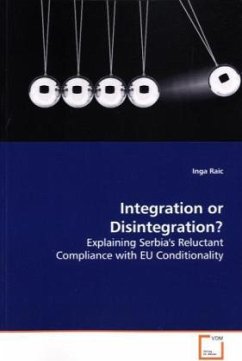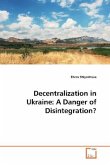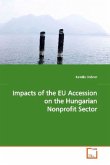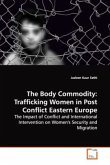The effect of EU conditionality has been largely
applauded in the
case of enlargement to Central and Eastern Europe
(CEE). Despite
limitations it largely helped the CEE countries
transform from
communist regimes to market economies and liberal
democracies. In
the case of the Western Balkans however, the
application of
conditionality has deviated from this ideal
functioning. This work
examines the case of Serbia where compliance has been
particularly
constrained. It focuses on cooperation with the
International
Criminal Tribunal for the former Yugoslavia and the
case of Kosovo,
and finds shortcomings
in both the EU s and Serbia s approach. On the one
hand, the EU has
failed to produce satisfactory initiatives to
encourage substantial
Serbian compliance. On the other hand, compliance is
stalled
because certain aspects of EU conditionality conflict
with the
collective understanding of Serbian national
identity. This two-sided
analysis draws on both rationalist and constructivist
arguments and
gives an in-depth account of Serbian Europeanization.
The work is
therefore useful both to scholars of European Studies
and scholars
of nationalism.
applauded in the
case of enlargement to Central and Eastern Europe
(CEE). Despite
limitations it largely helped the CEE countries
transform from
communist regimes to market economies and liberal
democracies. In
the case of the Western Balkans however, the
application of
conditionality has deviated from this ideal
functioning. This work
examines the case of Serbia where compliance has been
particularly
constrained. It focuses on cooperation with the
International
Criminal Tribunal for the former Yugoslavia and the
case of Kosovo,
and finds shortcomings
in both the EU s and Serbia s approach. On the one
hand, the EU has
failed to produce satisfactory initiatives to
encourage substantial
Serbian compliance. On the other hand, compliance is
stalled
because certain aspects of EU conditionality conflict
with the
collective understanding of Serbian national
identity. This two-sided
analysis draws on both rationalist and constructivist
arguments and
gives an in-depth account of Serbian Europeanization.
The work is
therefore useful both to scholars of European Studies
and scholars
of nationalism.








